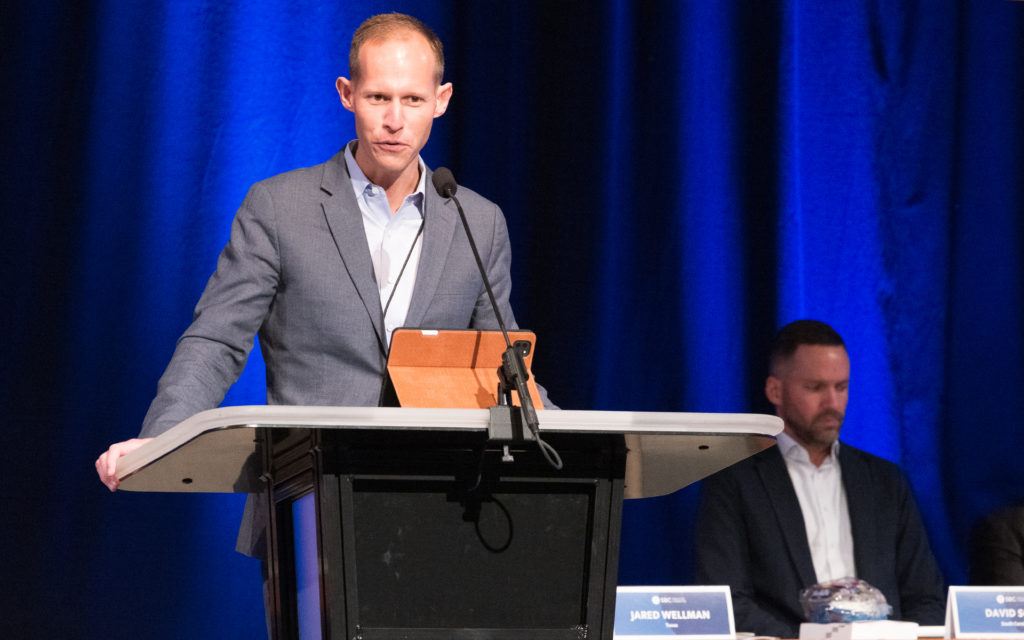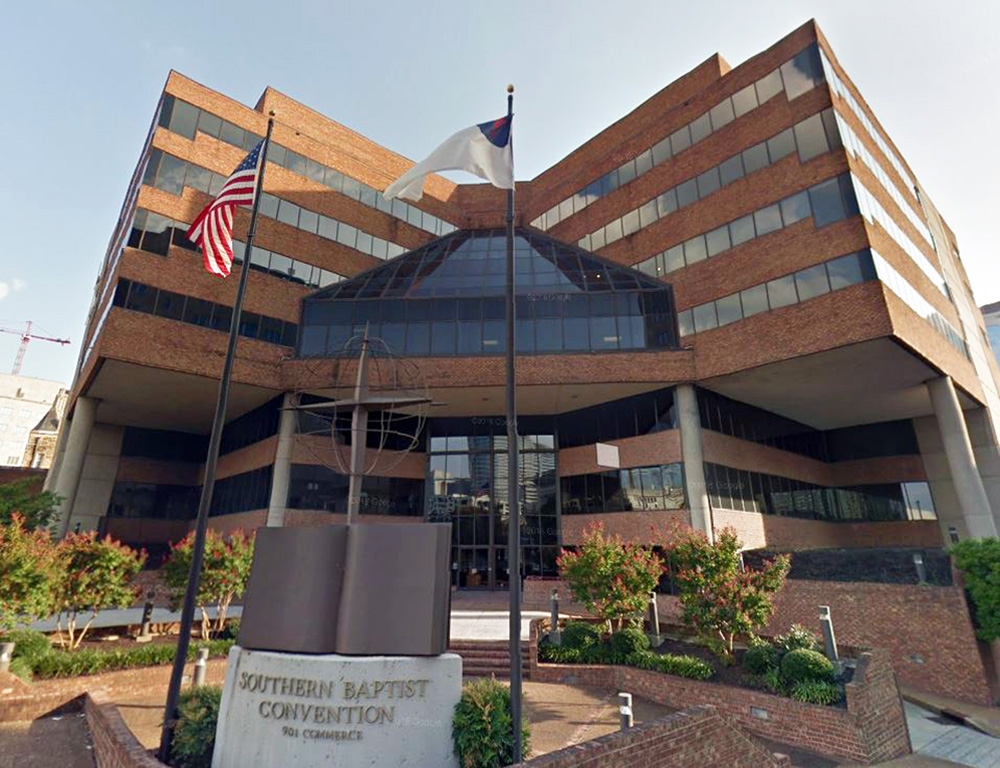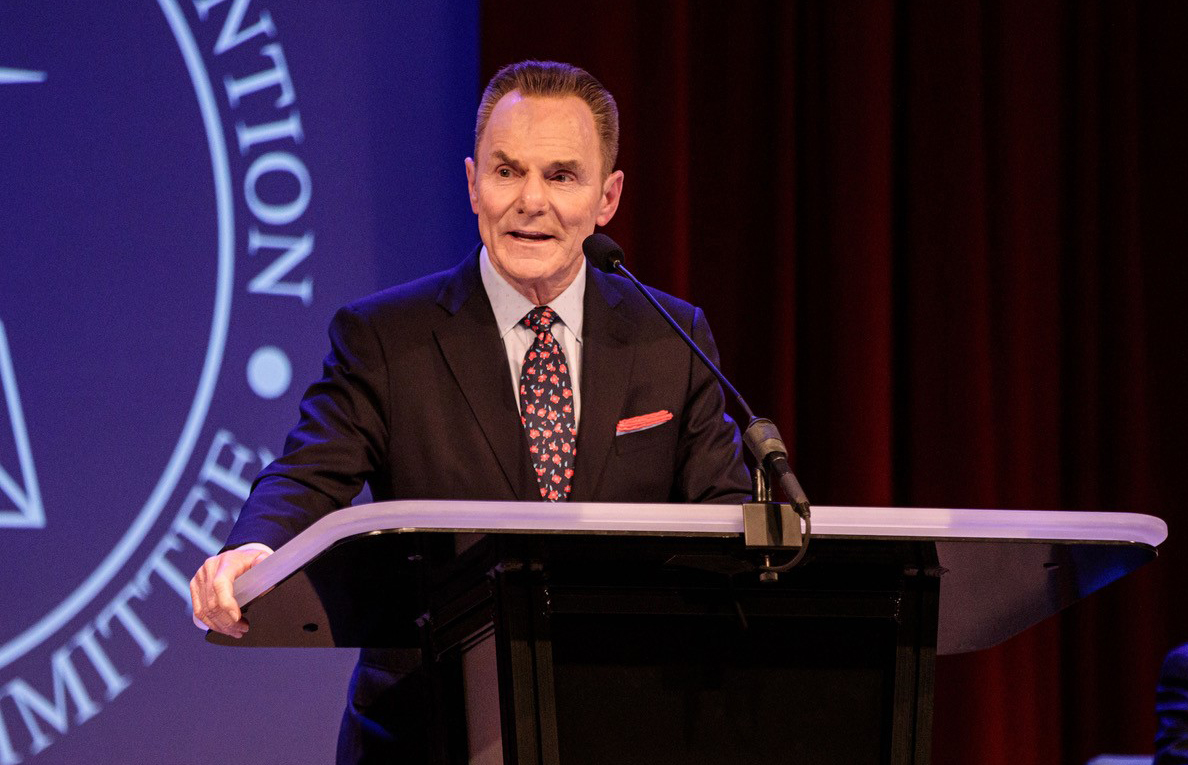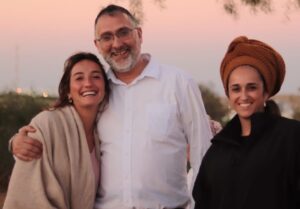
Editor’s note: The following is a transcript of comments delivered by SBC Executive Committee Chairman Jared Wellman during the EC’s plenary session Monday night (Sept. 19).
NASHVILLE (BP) – On October 5, 2021, the Executive Committee, as we knew it, died.
And that’s not a bad thing. The Scriptures tell us that true life comes out of death.
Jesus says, “Whoever would save his life will lose it, but whoever loses his life for my sake will find it” (Matthew 16:25).
This verse, of course, has to do with salvation. But, when it comes to sanctification, this principle applies to daily living for the believer, not to gain salvation but as evidence of it. As Adrian Rogers has said, “Holiness is not the way to Christ, but Christ is the way to holiness.”
In the context of sanctification, this is known as dying to self, which is evidence that you’ve died with Christ.
The context of Matthew 16:25 is of course 16:24, which provides insight into this: “If anyone would come after me, let him deny himself and take up his cross and follow me.”
It’s my estimation that an SBC and an EC who chose to waive privilege – something which is not a wise legal practice – came to realize that dying without privilege was better than living with it, because it was the option that allowed us to better follow Jesus in how we identify and root out abuse.
Resistance would mean we were trying to save our own life for our own sake, and, therefore, be on the verge of losing it altogether.
As Jesus says, “What will it profit a man if he gains the whole world and forfeits his soul?”
The past few years have displayed a battle for the soul of the SBC, but what we all want is to be a cog in the machine of the Great Commission. This is why I’m grateful that the EC, though through trial and tribulation, determined it was better to lose our life than to keep it. We chose to lose our life for the sake of the Great Commission. And that’s where true life is found, because an EC that tries to save its own life for its own sake is an EC that’s not truly living.
Of course, the irony is that since we’ve died, we can finally start living. So, losing your life is not a bad thing, because from it sprouts life.
So, while we die in order to live, it’s also true that we live in order to die. We aren’t a people who gain life for life’s sake, but give it away like Christ did for us.
In 2 Corinthians 4:11-12, Paul describes it like this: “For we who live are always being given over to death for Jesus’ sake, so that the life of Jesus also may be manifested in our mortal flesh. So death is at work in us, but life in you.”
In other words, in Christian ministry, while we die to live, we live to die because in this, others can live. This is the ministry of Jesus.
The context of this Corinthians passage has to do with displaying the treasure of the Gospel in a fragile pot. The intimation is that the pot needs to be broken in order for the light of the Gospel to shine forth. Some preceding verses read: “For God, who said, ‘Let light shine out of darkness,’ has shone in our hearts to give the light of the knowledge of the glory of God in the face of Jesus Christ. But we have this treasure in jars of clay, to show that the surpassing power belongs to God and not to us.”
In other words, sacrifice is God’s design for the Christian life.
Some years ago, when in college, I was able to visit Israel. I wanted to buy a piece of pottery while I was there. The only problem was, how was I going to get it home? I babied this thing through security, put it in my lap in the plane, all the way until I met my wife in the airport, who was then my fiancé. We hadn’t seen each other in two weeks, and so it was sort of like the movies when the music begins to play and the two lovebirds run toward each other in slow motion. So, with one hand I reached out to hug her and with the other I held onto the pot. Someone snapped a picture of that moment and captioned it with, “Which one is he holding tighter?”
The question for us is, “Which are we holding tighter, our life or the Gospel?”
The idea is that the Gospel is inside the fragile pot, and the pot’s choice to embrace death helps the strong Gospel to shine forth from it.
By dying to self we get to display the Gospel to the lost man in southeast Asia, the unreached college student in San Francisco, and those left broken by racism and sexual abuse.
Our dream in this new day in the EC is that our churches would be safe for the vulnerable and unsafe for abusers. Through new reforms like the ARITF, we’re not merely chasing abuse out but hunting abuse down and letting abusers know there is no place – there is no tolerance – for abuse in a Southern Baptist church. This is why it’s imperative for us to make sure the Guidepost report is disclosed to our churches, and to support the ongoing reforms with the ARITF.
Our SBC deserves an EC that doesn’t live for itself, but an EC that lives for Christ.
We must remember that people aren’t saved by the the EC or the SBC, but by Jesus. As it’s been said, “God doesn’t need the SBC, but the SBC needs God.” And this is why we made the decision we made last October. Why we chose, proverbially, to die. We put our faith where God has put our sins, on Jesus, and we let the chips fall where they fall, and that’s OK.
Now we can start to live, and in that life, we die for others – the lost, the broken, the abused, the forgotten. May we all find abundant life in Christ through the ministry of the churches of the Southern Baptist Convention.
Let’s die to self, so we can live to die, so the world can see the hope of Christ.





















